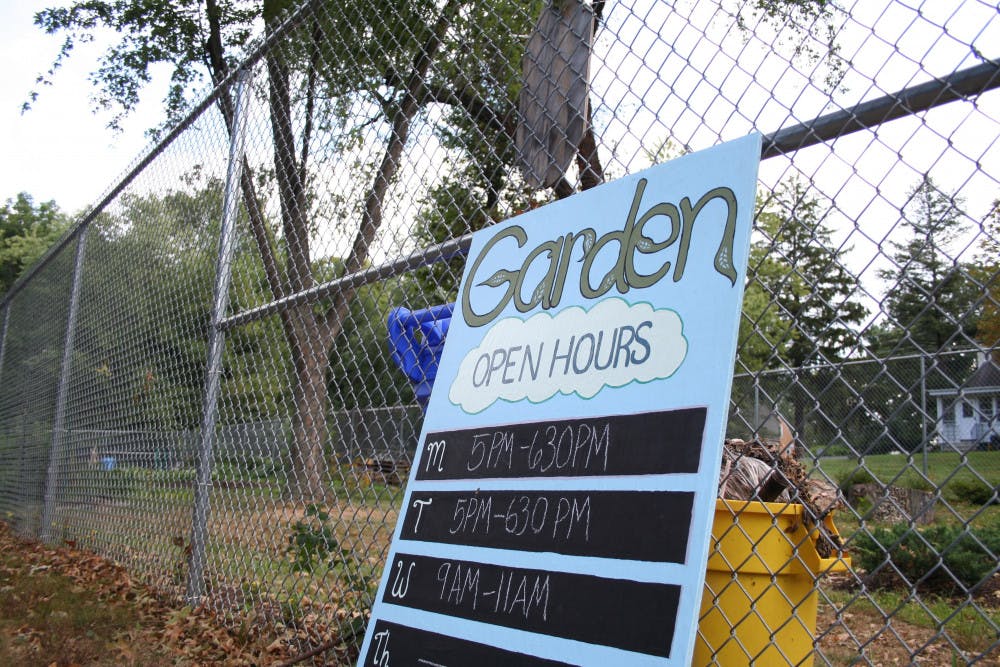By Thomas Infante
Review Editor
Kendall Hall was buzzing with excitement on Wednesday, Sept. 7, for keynote speaker Will Allen. Many of the students who attended the event were familiar with his book “The Good Food Revolution,” which is being used as a textbook in certain history classes at the College and was the summer reading for the freshman class.
In his keynote presentation, Allen outlined his vision of an agricultural revolution, with the goal that “every person on Earth should have access to healthy food.”
The United States is one of the largest and most affluent countries in the world and it can be hard to believe that there are over 22 million people who live without access to fresh food. These areas, called “food deserts,” are often situated in impoverished urban areas. Residents of food deserts often find themselves and their families eating from convenience stores and fast food restaurants on a daily basis, and their health suffers as a result.

Enter Allen, chief executive officer and founder of Growing Power. He was born in rural Rockville, Md., to parents from farming families. After finishing high school, he accepted a basketball scholarship at the University of Miami, hoping to go on to play professionally. In 1993, he retired from basketball at age 28 and moved to Milwaukee, where he eventually purchased the only remaining Milwaukee farm. From those measly three acres of largely infertile land, Allen started a movement that would go on to feed thousands of people, and build virtuous community values.
“We are at a very critical stage in our food production system,” Allen said during his talk. “We all need to think about the future.” Projected behind him were pictures of his various greenhouses, filled to the brim with bright greenery and lush produce.
“Our food system is not on the agenda for the ‘talking heads,’” Allen said. “Low income communities often become food deserts, but everyone’s got to eat.”
Allen uses agricultural techniques that are simple and compact in order to operate within an urban environment with limited space. One of the largest issues is the severe lack of nutrients in our soil. Allen developed his system of what he calls “growing soil,” or intensive, large-scale composting. By creating his own healthy soil, he is able to grow much more nutritious crops than he could with local soil. Allen told the audience that in the last year, Growing Power utilized 40 million pounds of waste in its composting program — waste that otherwise would have ended up in a landfill.
Allen also showed the audience pictures of the many worms that are crucial to Growing Power’s composting system. The worms consume the food waste and release nutrient-rich worm castings, which fertilize the soil.
“It’s also always fun to hand an unsuspecting kid some worms and watch his reaction.” Allen said to a laughing audience.
Since the inception of Growing Power, Allen has allowed local children and adolescents to learn practical farming and life skills. In Milwaukee, a city plagued by poverty, there are few healthy outlets for children.
“When I first started working with kids, I was surprised how many of them couldn’t read or write,” Allen said. He also uses Growing Power to reach out to the homeless and the drug-addicted, who otherwise would not be able to hold a job and build work experience.
“We had to make special accommodations to allow them to work,” Allen said. “The only way to end poverty is to give people jobs.”
Allen aims to improve his community by implementing what he calls “flower explosions” in which he and his assistants plant a garden of vivid flowers on an otherwise dingy street corner.
“We like to do these on corners where drug dealers or gangs hang out because more people look at them and it makes them uncomfortable, so they leave,” Allen said.
He is an agricultural visionary with an important message, but it is a message that is too often ignored. Malnutrition within the U.S. is underreported, and many people who live with access to fresh food are unaware of the severity of the situation.
“I had no idea how many people were affected,” said Sophie Cohen, a sophomore elementary education and math double major.
Cohen agreed with Allen’s message and admired his character.
“He seems like he’s genuinely trying to make a difference,” she said. “It’s empowering. It kind of makes me want to be a farmer.”
Allen began Growing Power because he wanted to grow healthy food where none existed. In the process, he found that his local community needed more growth than any plant could.how to fix the problems facing the world.







